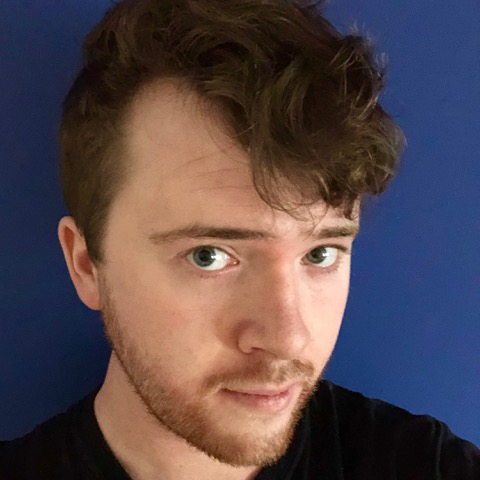
What is your position or role in the DESI project?
I’m a postdoctoral research fellow working on finding and studying the long-term properties of tidal disruption events. You can think of this as listening for the echoing screams of a star being torn apart by a black hole it has had the misfortune of drifting too close to! In reality it’s about finding the specific pattern of light these events leave in the spectrum of the galaxy in which they happen. As part of this work, I’m a member of the ‘Transients and Low-Redshift Cosmology’ and ‘Galaxy and Quasar Physics’ working groups and am co-lead of the QSO/AGN Topical Group, helping to co-ordinate broader work looking into what the supermassive black holes at the centre of galaxies get up to.
Where were you born?
I was born in the Northern Irish town of Ballymena and whilst I might have left, I carry the accent with me.
Where do you live now?
I currently live in Portsmouth on the south coast of England close to the University of Portsmouth where I’m part of the Institute of Cosmology and Gravitation.
What do you do as part of DESI?
My day-to-day is a mixture of different things. It can be looking through the spectra of galaxies that might contain the signature of an ongoing tidal disruption event to discover and classify new events. I might also use DESI data to follow-up on existing events to see how they have evolved and what that can tell us about them. I also do a lot of computer coding to search for the most interesting objects -with the millions of spectra DESI gathers no one can look through them all! – and to process the data to learn as much as possible both from individual objects and what they can reveal as a group.
As a Topical Group co-ordinator, I also have a role in making sure those of us working on supermassive black holes are aware of what is being worked on by others in DESI so we can learn from each other and move forward as efficiently as possible.
What is the most interesting or exciting thing about your job?
As the objects I investigate are so far off into the universe, it takes their light a very, very long time to reach us here on Earth. So, in a way it’s like using a time machine, as what DESI picks up from the galaxy ‘now’ is from a time long before dinosaurs roamed the Earth. As my research focuses on individual events, what they can tell us about the galaxies they occurred in and the physical processes that drive some of the most extreme events in the universe, it’s like being a time traveling accident investigator which I think is pretty cool.
What excites/interests you most about DESI?
DESI is collecting a truly monumental amount of data, with spectra for millions of galaxies. With a dataset like this we are able to learn a lot more about the rarest types of galaxy, performing studies that just aren’t possible using the small numbers of such objects that have been discovered by chance up to this point. It also goes without saying that with so many galaxies being explored, we are bound to discover things we didn’t even know to look for!
Any advice for an aspiring scientist?
I think my two pieces of advice would be:
1) Get as much experience with computer coding as you can. Science and coding are very tightly linked and the more experience you have the easier you will find it to take on new problems. It’s also not as daunting to learn as you might think, and the satisfaction of getting a new piece of code working makes all the challenges worth it.
2) Believe in yourself – there isn’t one path to success. If you have a goal in mind there can be multiple ways to get there and feel free to reach out to people in the field, I’m sure they will be happy to offer advice and support.
What do you do for fun?
I’m an avid RPG and strategy gamer with ‘Starfield’ and ‘Stellaris’ being a couple of my go-to’s, with Pokémon having a strong grip on me as well. I find spending time with my friends at a local pub or restaurant is an excellent way to unwind after a busy week. There is also little better than curling up with a cup of tea and watching a good movie or TV program – ‘House of the Dragon’ and ‘The Traitors’ being my current favourites.
If you weren’t a scientist, what would be your dream job?
Now that’s a tough one. Being an astronomer has been my dream job since I was about four years old so I’d have to go with a veterinarian.
